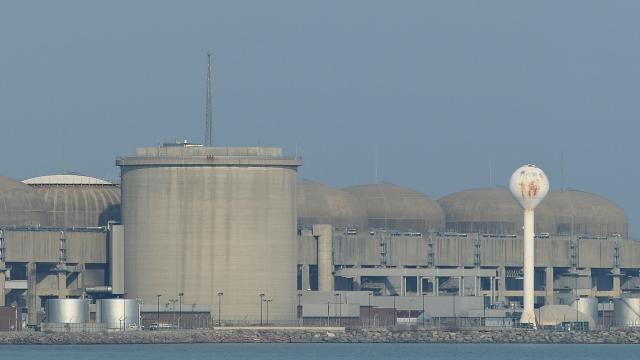Canadian officials have demanded an explanation after an inaccurate alert was sent out to cell phones stating staff were responding to an incident at Pickering Nuclear Generating Station near Toronto on Sunday, the BBC reported.
The “emergency alert” was sent out by Ontario’s Provincial Emergency Operations Centre (PEOC) and notified people within 10 kilometres of the facility that “There has been NO abnormal release of radioactivity” and that they “DO NOT need to take any protective actions at this time.” Of course, receiving an emergency alert from a nuclear facility is disconcerting whether or not it claims people in the area are at risk.
The Pickering plant is one of the world’s largest and has six Canadian Deuterium Uranium reactors that push out a combined 3,100 megawatts. It is located around 45km from Toronto and is scheduled to go out of service in 2024.
The Associated Press reported it has several incidents in its history, including a 2011 spill of 19,200 gallons of demineralised water into Lake Ontario and a 1994 spill of 132 tons of heavy water, forcing the use of emergency core cooling systems.
According to the BBC, the message went out around 7:30 a.m. ET. Another alert was sent out later informing the public that the first had been a mistake, though not until nearly two hours had passed. Pickering Mayor Dave Ryan told the BBC he was “demanding a full investigation,” while Toronto Mayor John Tory tweeted that it is important “we know how this error happened & what steps will be taken to ensure it doesn’t happen again.”
According to the Globe and Mail, Ontario Solicitor-General Sylvia Jones said that the incident appeared to have been the result of a routine training exercise gone wrong. Chief nuclear officer Sean Granville of Ontario Power Generation, the company that owns the Pickering plant, told the paper that “OPG has a sophisticated and robust notification process in place that we would immediately follow in the unlikely event of an incident at the station. I want to assure the public that there was no incident at the station, and the plant is operating as designed.”
The New York Times reported that the alert doesn’t appear to have set off anywhere near the same sort of panic as an erroneous alert that a ballistic missile was about to strike Hawaii in January 2018.
That message was sent out during heightened tensions between the nuclear-armed governments of the U.S. and North Korea and advised Hawaiians to immediately take shelter, sparking mass panic and sending many scrambling for cover. The Federal Communications Commission later released a report blaming the false missile alert on a surprise drill gone wrong.
The Globe and Mail noted that in 2017, Ontario auditor-general Bonnie Lysyk released a report stating that the province’s emergency-management system was in need of better oversight and coordination (plans to implement a coordinated IT system were scrapped in 2014 after five years of work and $US7.5 ($11) million spent on the project failed to pan out). Per the Times, the system has struggled to send out text messages to all the cell phones in regions experiencing emergencies, with older cell phone networks in rural areas unable to send the alerts.
